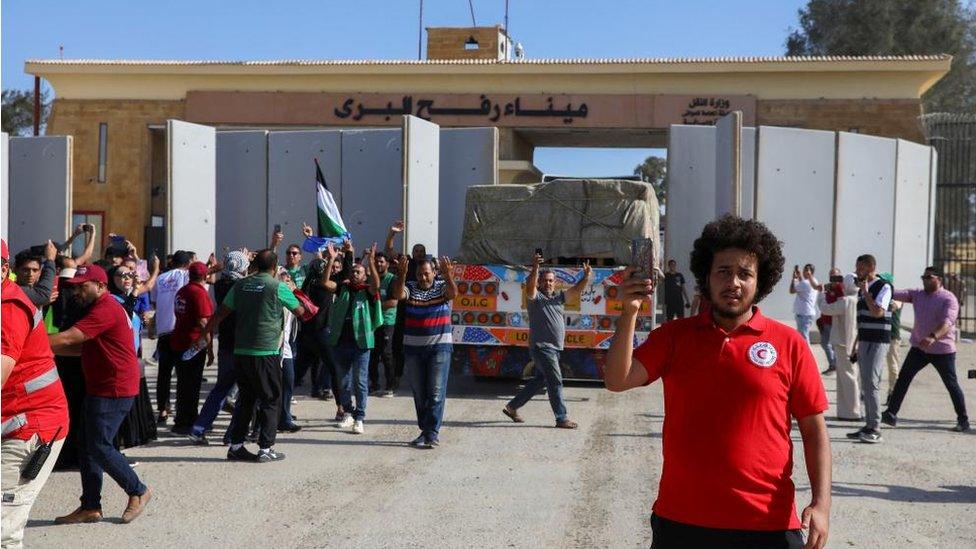Israel-Gaza war: UN agencies call for Gaza ceasefire as aid arrives
- Published
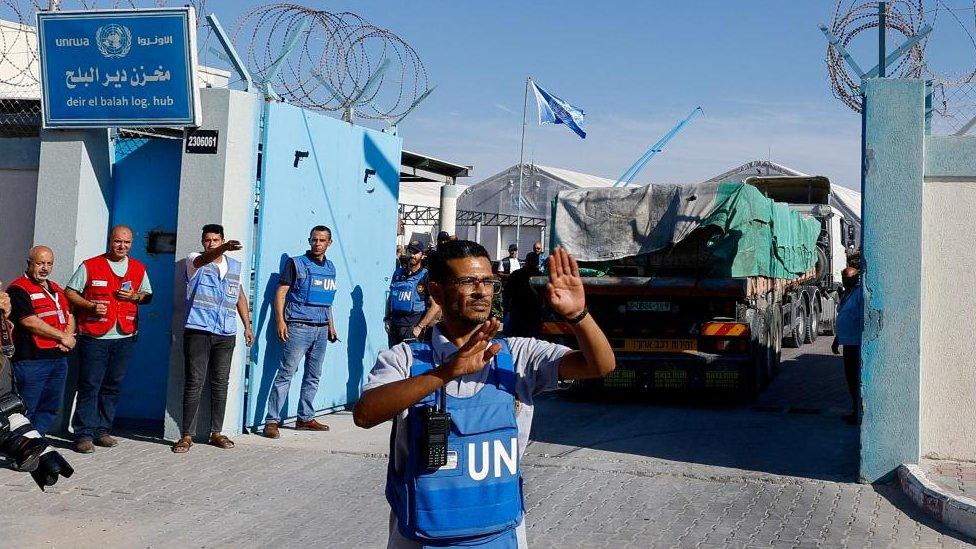
UN agencies say children, women and the elderly "remain the most vulnerable" in Gaza
A group of UN agencies have called for a humanitarian ceasefire in Gaza as conditions worsen in the territory.
The World Food Programme (WFP) and the World Health Organization (WHO) were among five agencies who described the situation in Gaza as "catastrophic" in a joint statement.
The UN's plea for a de-escalation of the conflict comes as Israel warns of intensified strikes on Gaza.
On Saturday, 20 aid trucks crossed from Egypt for the first time in two weeks.
But campaigners said the aid that flowed through the Rafah crossing represented a "drop in the ocean" of what was needed.
Prior to the war, about 500 aid trucks a day were entering Gaza, said a spokesman from ActionAid Palestine.
A significant proportion of those living in the territory - some 1.2 million people - already relied on aid before the recent conflict erupted, according to the UN.
Israel began retaliatory air strikes on Gaza after an unprecedented assault on 7 October by Hamas's military wing on Israel. About 1,400 people were killed in that attack - many of whom were in their homes near Gaza or at a music festival in southern Israel.
More than 4,300 Palestinians have been killed in the last two weeks in Gaza, according to the Hamas-run health ministry.
Israel is widely expected to launch a ground offensive into the Gaza Strip, but the timing remains unknown. In the meantime, it has put Gaza under siege, cutting off essential supplies.
Saturday's aid delivery included medicines, food, water and coffins, but not fuel.
The UN agencies highlighted that children, pregnant women and the elderly were the most vulnerable - and that nearly half of the population of the Gaza Strip were children.
The UN's Development Programme (UNDP), its Population Fund (UNFPA) and its International Children's Emergency Fund (Unicef) put forward the statement alongside the WFP and the WHO.
As well as calling for a ceasefire, they said "immediate, unrestricted humanitarian access throughout Gaza" was necessary to "allow humanitarian actors to reach civilians in need".
They added that "more than 1.6 million people in Gaza are in critical need of humanitarian aid".
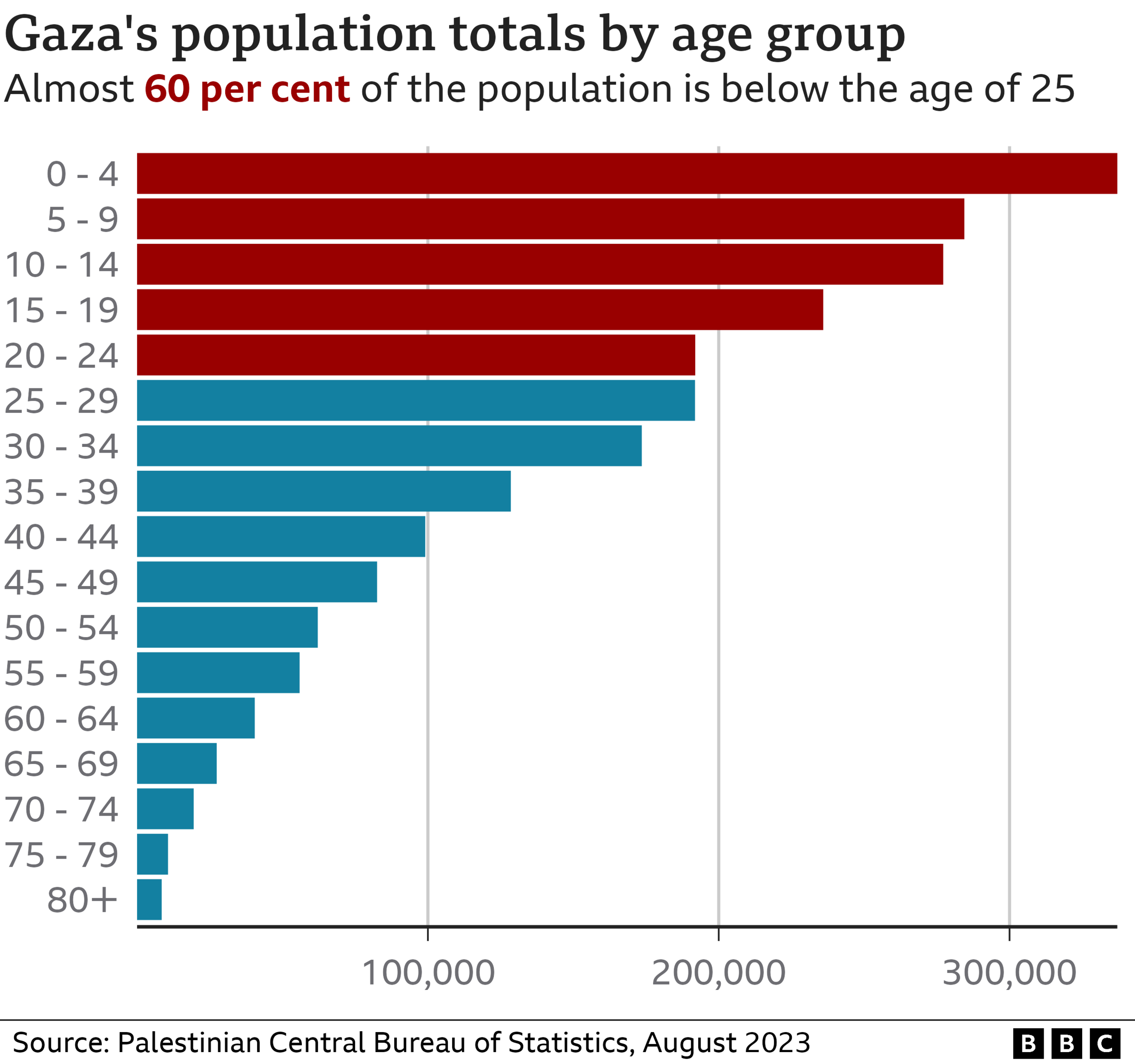
The Gaza Strip is a densely-populated enclave bounded by the Mediterranean Sea on one side and fenced off from Israel and Egypt.
Home to 2.2 million people, the region is 41km (25 miles) long and 10km wide.
"Gaza was a desperate humanitarian situation before the most recent hostilities," the UN agencies said. "It is now catastrophic".
Also on Saturday, leaders of the Arab world rejected the forced displacement of Palestinians into the Sinai peninsula.
Speaking at a summit in Cairo, Egypt's President Abdel Fattah al-Sisi said the only solution was an independent state for Palestinians.
US Secretary of State Antony Blinken urged Israel and Egypt to allow the Rafah crossing from Egypt to remain open to allow sustained supply of aid.

More on Israel-Gaza war
Follow live: Latest updates
Explained: What is happening in Israel and Gaza, and why now?
History behind the story: The Israel-Palestinian conflict
Gaza: Dead and wounded strain Gaza hospitals as air strikes intensify

Related topics
- Published21 October 2023
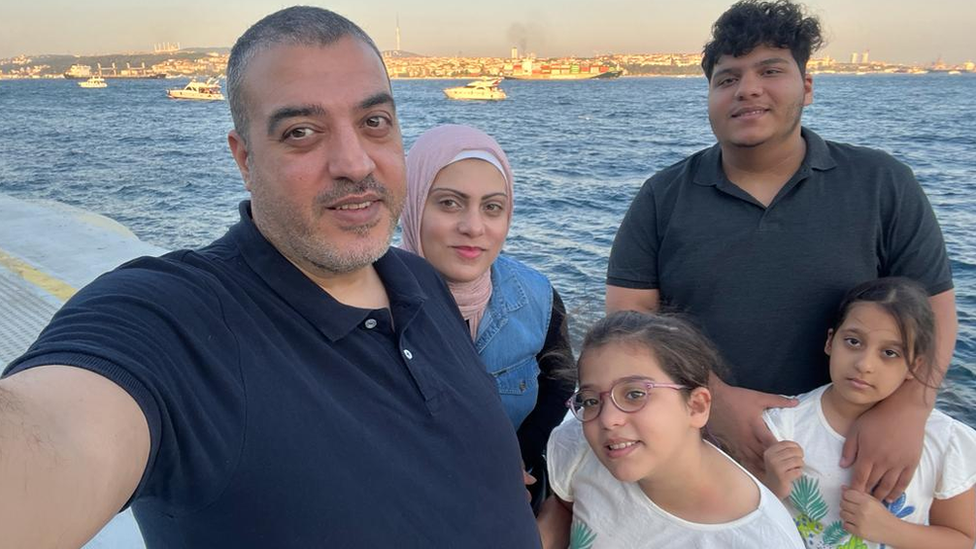
- Published16 January
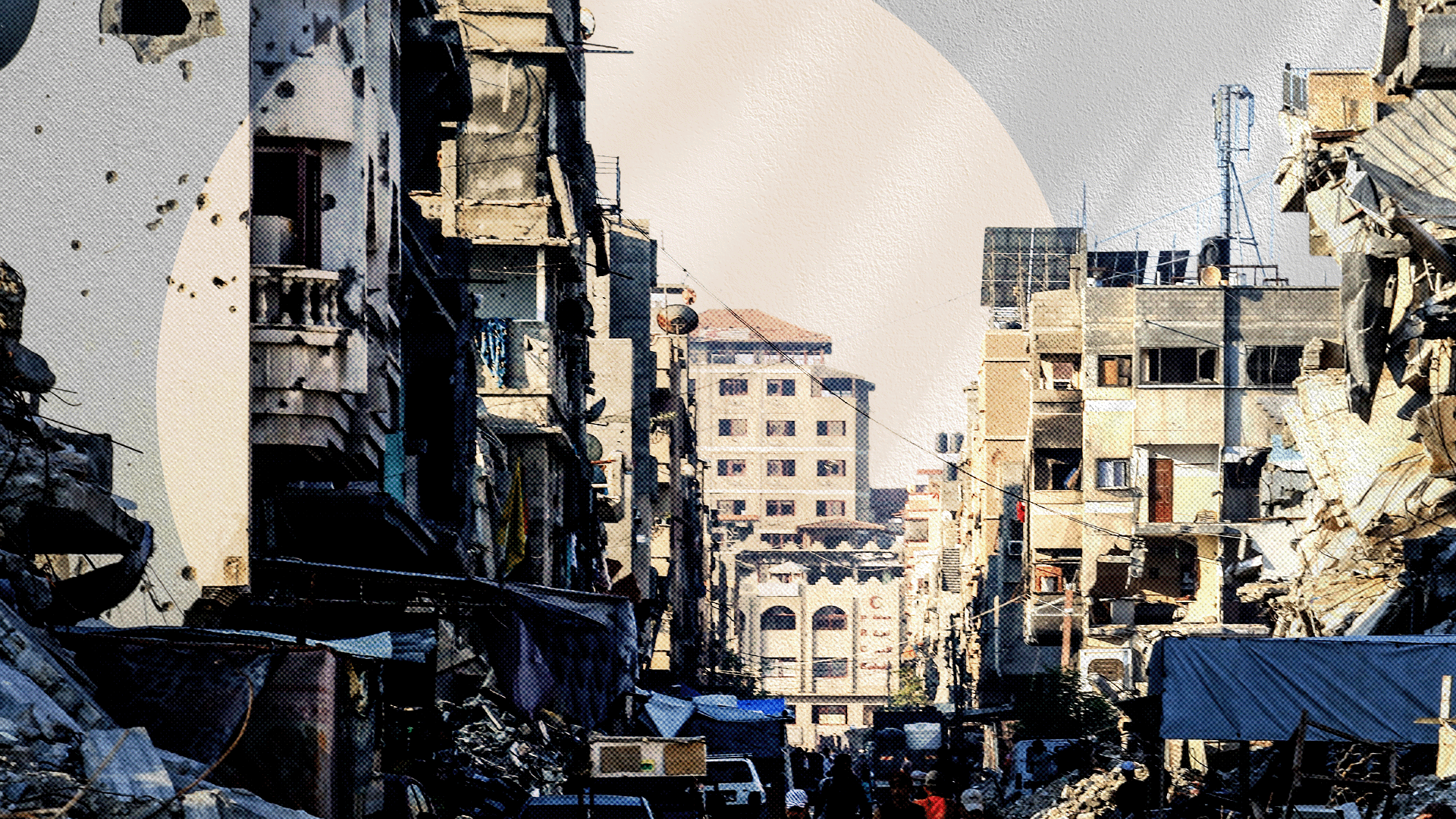
- Published21 October 2023
